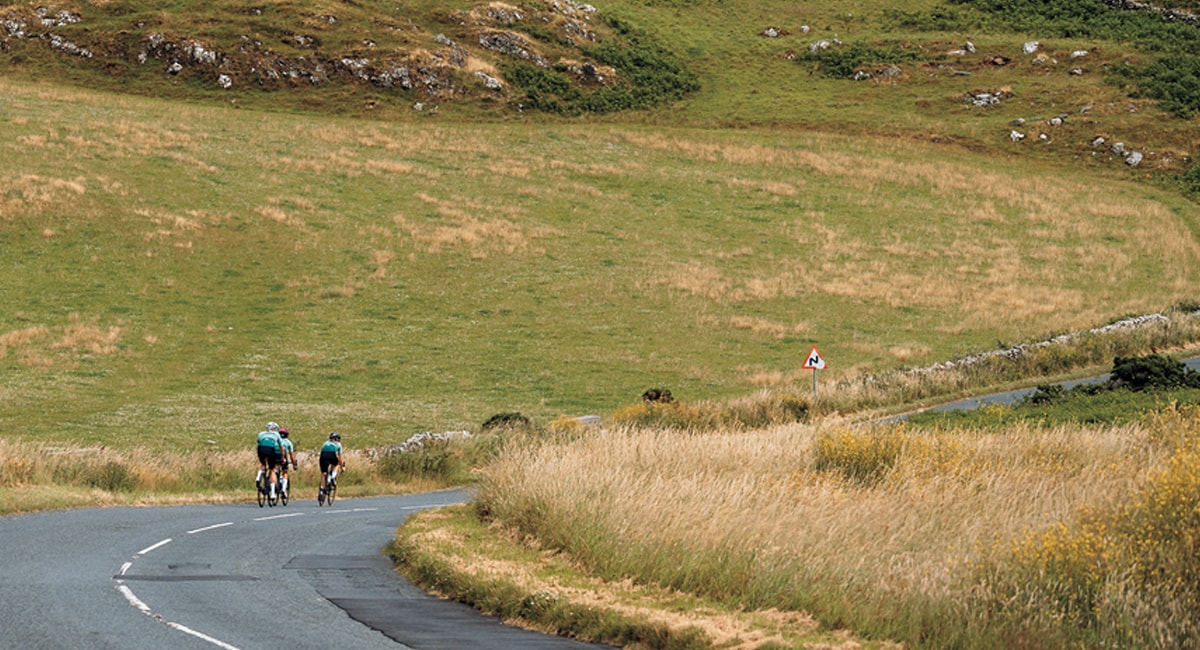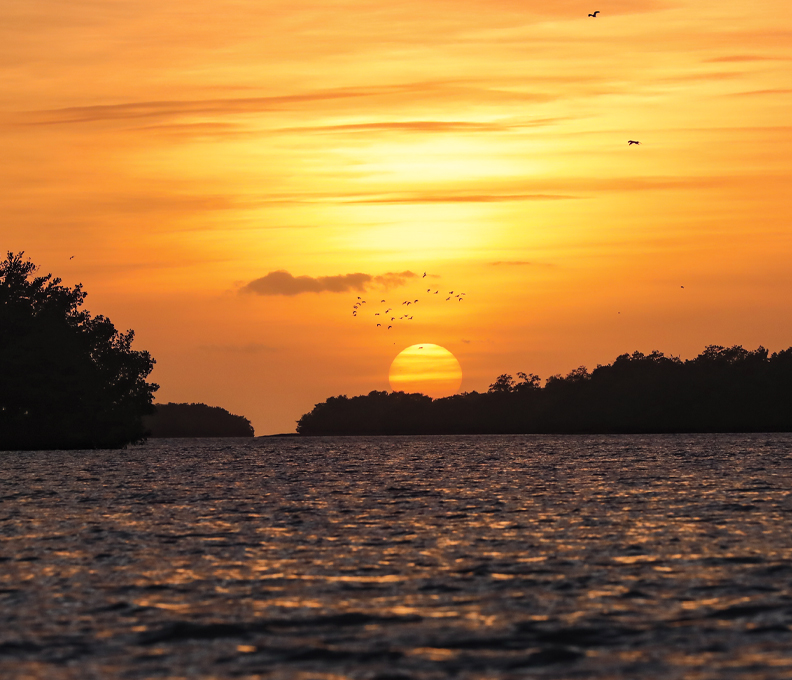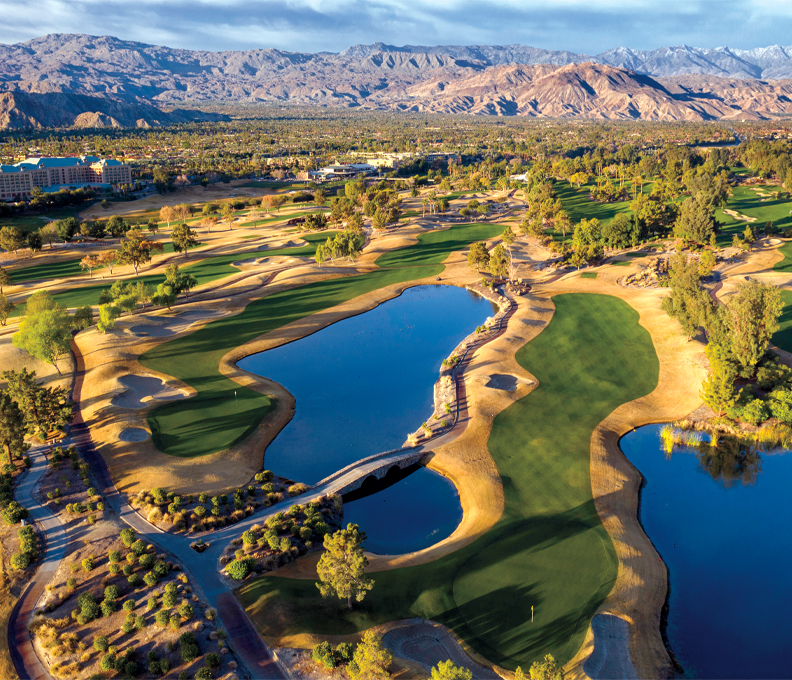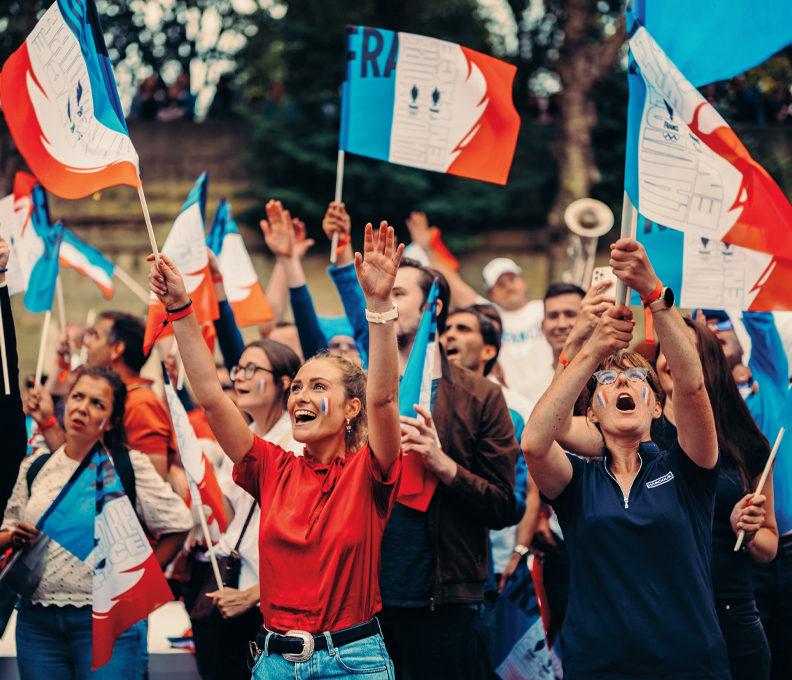LeBlanq’s Luxury Cycling Excursions Offer the Chance to Ride beside Big-Name Former Pros
The new vacation experience promises cyclists levels of luxury they’d never get on a club outing—and the chance to ride beside big-name former pros
September 5, 2022

Like many people of a certain age, I’ve really gotten into cycling in the last decade. Maybe years of sitting behind a desk made me yearn for the freedom and fresh air, maybe it’s the realization that exercising is the new partying (and doesn’t cause hangovers). But during all those long hours pedaling through lonely countryside, and the grim miles commuting in London rain, I never imagined I’d be here: on quiet roads in rural Scotland, holding a punishingly hard pace beside Sir Chris Hoy, a man whose bike mastery won him seven Olympic medals. I have to keep looking round to make sure it’s real, but the increasing pain in my legs confirms it is.
I’m on a weekend tour run by LeBlanq, a British company curating trips for those who want more comfort and occasion from their cycling getaways. Instead of sickly-sweet energy gels, we refuel with the cooking of Tom Kitchin, executive chef at the Michelin-starred Kitchin in Edinburgh and a champion of Scottish produce. Instead of stuffing our jersey pockets with rain jackets and pumps, we’re followed round the course by an Aston Martin DBX bearing essentials (and a photographer on a motorbike, for preserving those memories). And instead of a quick post-ride stretch then back to the grind, it’s yoga on the lawn before a massage. This is what LeBlanq calls “joyriding,” and it’s accurate.
The weekend began as I arrived at our base of Dunskey, a grand baronial pile straight out of a Scottish tartan fantasy. It’s in Dumfries and Galloway, the southwestern region sometimes overlooked in favor of the busy cities or the wilder Highlands, but whose rolling hills and (relatively) warmer weather make it a fine place for a spin. In the wood-paneled hall, the LeBlanq concierge greeted me with a bespoke Rapha jersey—they commission one for each event—and a glass of champagne while a mechanic checked my bike.
As founder Justin Clarke showed me around the endearingly eccentric old house, which overlooks the Irish Sea, he explained his concept. “Road cycling has always taken pride in being brutal,” he said. “There’s even a well-known training company called Sufferfest! But I could see the new audience in cycling didn’t want to suffer. They wanted to enjoy great hospitality and dine well.” He’d know about suffering, being an ex-pro, and he’s right—think of those iconic images of sunburnt riders grimacing up Alpine slopes or powering through wheel-deep mud in Flanders. While I have to admit a certain admiration for that kind of sacrifice, I also have to admit I’m getting near the top of the metaphorical hill in life, a time when a nice glass of wine, some fine cooking, and a comfy bed are very welcome after a tough day on the bike.
And it seems I’m not alone. LeBlanq is into its second year of operation and demand is high. One previous trip had guests gliding past the vineyards of Champagne with Californian three-time Tour de France winner Greg LeMond before repairing to a nearby château to dine courtesy of three-Michelin-starred chef Alain Passard. Another group hit the roads on the scenic Isle of Wight with cycling god Sir Bradley Wiggins while chef Angela Hartnett made dinner. In 2023 the company has events in South Africa, Ibiza and Norway, among others. Each offers rides of varying intensity, meaning if you’re more a stroller than a sprinter, you don’t have to pretend you’re riding in a peloton.
But I sometimes do pretend I’m in a peloton. So, I signed up for the 93-mile route, and am feeling the butterflies as I tuck into a breakfast of eggs and local smoked salmon on Saturday morning. My ride will be led by Hoy, with able backup from young professional Rory Townsend, fresh from winning the Irish national road-race championships. It’s a beautifully clear and sunny morning, with a light wind breezing off the sea. After a pre-ride briefing we depart, everyone in matching outfits, Specialized Aethos bikes slick and shiny, SUV following behind. The pace is high, although not so much I can’t take in the green hills and swaths of native woodland as it passes by. We roll round a secluded bay and someone shouts that they’ve spotted a dolphin.
As we cover the miles, Hoy switches positions to chat to all eight riders. That’s how I end up with him at the front, and I’m a bit awed. The cliché about not meeting your heroes does not apply: He couldn’t be nicer. The whole world watched him win those medals at Sydney, Athens, Beijing and London, spearheading Team GB’s cycling gold rush, becoming one of the country’s best-loved sporting personalities, being knighted in 2009 for services to sport. We talk about growing up in Scotland, and his journey through BMX and mountain biking to the track, and how he drops his kids off at school in a cargo bike, which paints a brilliant picture. The competitive side of me thinks this is the time to ask for some training advice. But out here, the ever present modern obsession with getting stronger and faster seems inconsequential, because I realize something more important: Sure, I can keep my Peloton fantasies going, but even if I never achieve a fraction of what Hoy has on two wheels, there are other reasons to be doing this. “The main thing is to keep finding ways to enjoy it,” he says. “There’s nothing else like cycling. You can travel huge distances under your own power. You can do it with friends, or on your own. You can do it for exercise or just for fun. You can make it into a holiday or just cycle to the shops. That’s why I love it.”
As enjoyable as this ride is, trying to keep up with some of the strongest legs in sport takes its toll, and I have to pull back—a timely reminder that I’m not an elite athlete, and it’s meant to be fun. Back at Dunskey, there are cocktails by the loch and a chance to meet the other participants as the sun sets over the water. They’re a mix of ages and backgrounds; some are here with partners, some on their own, but everyone appreciates the all-inclusive hospitality as much as the cycling. It’s becoming clear why weekends like this are so popular. Anyone who has gotten even a little serious about cycling will know it’s as nerdy as you want it to be. It’s a sport that lets participants get obsessive over the technical details (a full-spec carbon bike will probably cost more than your first car). But we’re all here for the experience, and it’s an unforgettable one—any time I’m on a bike in the future, it’ll be easy to look back and remember “that time I cycled with Sir Chris Hoy.”
And Hoy, more than just about anyone, played a huge part in pushing cycling toward the mainstream. When I was growing up, it was a niche pursuit: enigmatically European, off-puttingly onerous. When a Brit or American broke through to the top, like LeMond, they were treated as an outlier. It certainly wouldn’t have been done by the sort of people who’d ask for a post-ride Laurent-Perrier. Clarke understands this change well: He co-created the international Taste food festivals, and was senior vice president at sports-management firm IMG. “I was heading up the global culinary division there,” he says, “and had an inside view of the steady decline in popularity of our golf division while witnessing the dramatic rise in popularity of road cycling. Essentially it was a shift of the same people, from golf to cycling.”
Personally I’ve never swung a club in my life, but I get the comparison. After chef Kitchin’s four-course dinner, which features hand-dived scallops baked in the shell and roasted halibut with Scottish asparagus, we all head to the lounge for a fireside chat. Hoy discusses his incredible career with special guest Jason Queally MBE, one of his mentors, who won an Olympic track gold in Sydney. It’s something of a cliché that great athletes are inspiring, but it’s true: Their dedication and talent make me marvel at what humans can do. And something Hoy says sticks with me more than the tales of bike-based prowess: “I love doing these weekends, because I meet so many people with different stories, but they all love cycling—and it’s not about timings, or power outputs, but just enjoying yourself on a bike.” In the end, I may not have picked up any training tips, but I’m left with something more useful: an urge to keep on pedaling.



